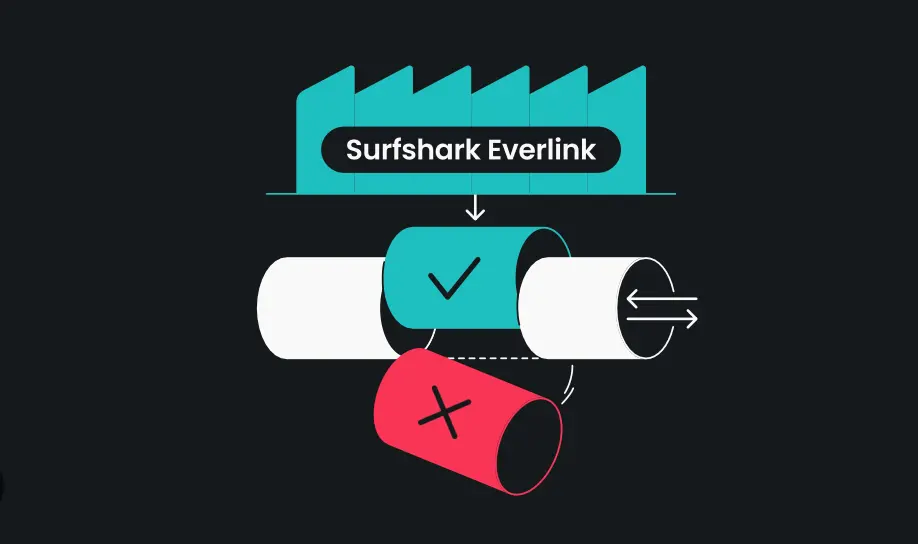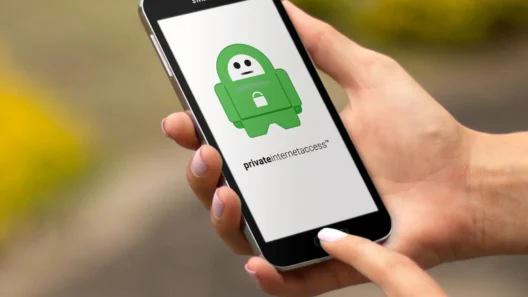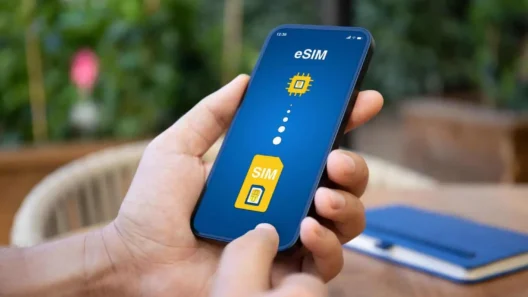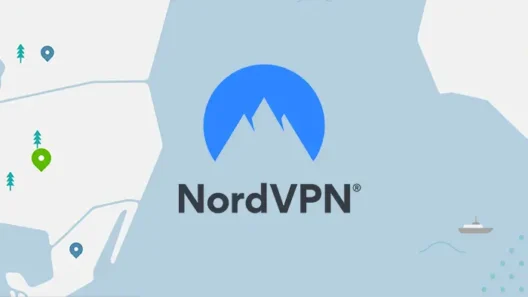Let’s be honest — we rarely think about the stability of our VPN connection… until it fails. Most of the time, VPNs either “work” or “don’t work,” right? But in the real world — with café Wi-Fis, hotel hotspots, 4G dead zones, and random glitches — there’s a third situation that’s even worse:
👉 The VPN is technically on, but it drops at the worst possible moment.
I’m talking about that exact second when you’re halfway through a Zoom meeting, in the middle of a financial transaction, or about to cross the finish line in a live-streamed Formula 1 race. That’s when a connection drop isn’t just inconvenient — it could be a disaster.
That’s why I was seriously intrigued by Surfshark Everlink — a new technology that promises not just to “secure” your VPN, but to make it bulletproof against drops, disconnects, and silent failures. And after spending time with it, I’m convinced: Everlink isn’t just a feature. It’s a mindset shift in how VPNs are supposed to work.
The Hidden Problem: VPN Drops Can Leak Your Identity
Let’s cut through the noise: if your VPN drops even for half a second, your real IP address can be exposed. That might not sound like a big deal if you’re just casually browsing Reddit. But if you’re a journalist working under censorship, a developer accessing a private Git repo, or just someone who values privacy without compromise, that half-second leak? It’s unacceptable.
And no, this isn’t a rare edge case. VPN drops happen all the time — especially when switching networks, experiencing signal loss, or when the provider’s server goes offline.
Enter: Surfshark Everlink — a “self-healing” VPN architecture that promises to prevent exposure by instantly restoring your tunnel without the need to reconnect or intervene manually.
So, What Exactly Is Surfshark Everlink?
At first, I thought it was just some kind of auto-reconnect feature. But Everlink is much deeper than that.
Here’s how I’d explain it:
If your VPN connection is like a secure tunnel, then Surfshark Everlink is a backup tunnel running right alongside it— ready to take over the second something goes wrong.
Technically, when you’re connected via WireGuard (Surfshark’s preferred protocol), you’re not just linked to one VPN server — you’re also linked to a parallel Everlink infrastructure. That means:
- If your primary tunnel drops, Everlink kicks in instantly
- The VPN connection heals itself without disconnecting you from the internet
- You stay connected, your IP stays hidden, and you probably won’t even notice anything happened
I tested this across several flaky connections — switching from mobile tethering to Wi-Fi, using low-signal cafés, even faking a server fail. And every time, Surfshark Everlink held the line.
SurfShark Everlink vs Kill Switch: A Whole New Approach to Protection
If you’ve used a VPN before, you’ve likely heard of the Kill Switch — the traditional safety net. If the VPN drops, Kill Switch immediately cuts off your entire internet connection to prevent leaks. It’s like slamming the brakes.
It works, but it’s also brutal.
Everlink, on the other hand, is like automatic traction control — it keeps you on the road instead of tossing you into a ditch and hoping you’ll climb back up. While the Kill Switch disconnects to keep you safe, Everlink reconnects invisiblyto keep you both safe and online.
In short? You get security without sacrificing continuity.
The Tech Behind It: Real Innovation, Not Just Buzzwords
Here’s where Surfshark Everlink impressed me even more — it’s not just a marketing label. This is a fully patented system (US11190491B1 and US20240080302A1) for resilient VPN architecture and server clustering, which means it’s truly one of a kind right now in the VPN space.
Unlike competitors who just slap together auto-reconnect logic, Surfshark engineered Everlink as a parallel infrastructure layer. The goal? Eliminate the moments of exposure and frustration users didn’t even realize were happening.
This isn’t a surface-level feature. It’s a foundational upgrade to how VPNs should behave — especially in unstable or high-risk environments.
Who Actually Needs Surfshark Everlink? (Spoiler: Probably You)
Think this only matters to hardcore privacy advocates? Think again. I’d argue almost anyone using a VPN regularlybenefits from Everlink. Here’s who it’s especially great for:
- 🌍 Remote workers switching networks between cafés, airports, and Airbnbs
- 📱 Mobile users on LTE or switching between data and Wi-Fi
- 💻 Developers or sysadmins accessing private servers
- 🕵️♂️ Journalists or researchers working in restricted countries
- 🎥 Streamers watching geo-blocked content without interruption
- ✈️ Travelers who rely on a VPN for consistent access to home content and services
If any of that sounds like you (and let’s be real — it probably does), Surfshark Everlink adds serious peace of mind.
No Buttons, No Setup, No Fuss — It Just Works
Maybe the best part? Everlink isn’t something you have to turn on. If you’re using WireGuard in the Surfshark app (which you should be — it’s fast, secure, and modern), then Everlink is already working in the background.
You don’t feel it. You don’t see it.
You just don’t get disconnected anymore.
That’s the kind of quiet brilliance I love — not features that scream for attention, but those that silently make your digital life safer and smoother.
Final Thoughts: This Is What VPN Evolution Looks Like
I’ve reviewed a lot of VPNs. I’ve seen companies add gimmicky features, more servers, shiny dashboards. But honestly? None of that means much if the connection itself isn’t reliable.
And that’s why Surfshark Everlink stood out.
It doesn’t just improve VPN stability — it redefines it. Instead of reacting to problems, Everlink prevents them. Instead of dropping you off the internet, it keeps you private and online at all times.
If you ask me, this is what VPN 2.0 looks like.
Want to try it?
If you’re already a Surfshark user and using WireGuard, you’ve got Everlink. If you’re not? Now’s a great time to check it out. It’s fast, reliable, and — thanks to Everlink — it’s also the most resilient VPN setup I’ve used to date.














